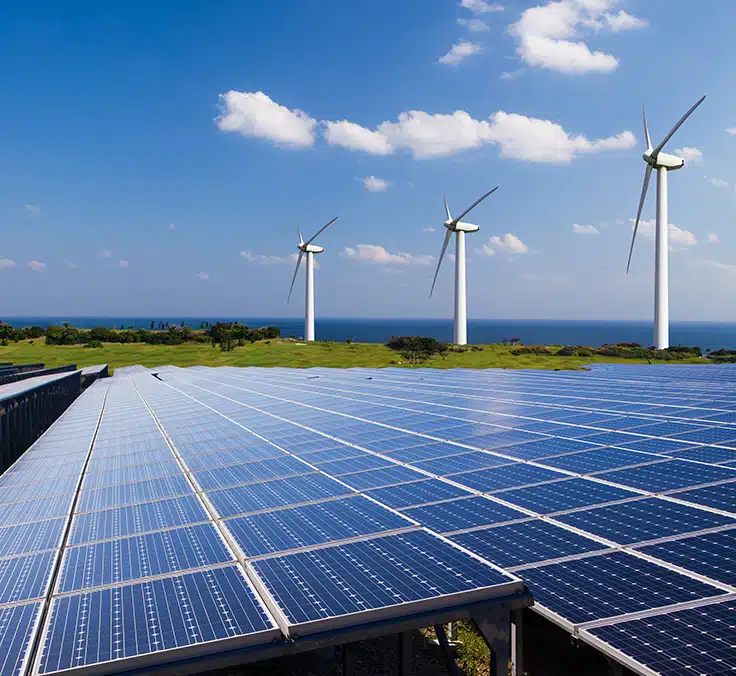SUSTAINABILITY | 10.14.2025
Investing wisely

Mauricio Manini
Beyond profitability, environmental, social, and governance (ESG) criteria serve to measure the impact of investments on society and the planet. MAPFRE's experience shows that sustainability and growth can go hand in hand.
The ESG criteria take their name from the initials of Environmental, Social, and Governance. In finance, they often refer to investments that not only evaluate economic performance—i.e., how much will be earned from them—but also other factors such as caring for the environment, engagement with society, or ethical management of organizations.
A few years ago, sustainable investments were talked about as a trend, but today they are a requirement for a large part of markets and society. As a result, in 2024, there were €6.6 trillion in ESG assets under management in the European Union, accounting for 38% of the total assets managed in the EU. This is noted in the report Potential Economic Impact of European Sustainable Finance by the European Parliament.
“The EU has made significant progress in recent years, particularly with the adoption of the sustainable finance action plan in 2018, the renewed strategy to finance the transition to a sustainable economy in 2021, and a series of legislative proposals,” the European Parliament stresses. Thus, countries and companies could advance towards sustainable development without compromising prosperity, although more cooperation, international standardization, and an appropriate framework will be necessary.
Two concepts, hand in hand
How are the ideas of the ESG criteria translated into reality? In the case of MAPFRE, our current Sustainability Plan 2024-2026 includes stringent and unequivocal commitments in social and environmental matters, with coherent services and products and a corporate governance structure that allows us to continue making progress in what we believe is the right direction.
Thus, as explained in our 2024 consolidated annual report, 90.2% of our investment portfolio is now rated with ESG criteria. Our explicit goal is to grow that number to 95% by 2026, so that the customer has more information when investing. In addition, another goal of MAPFRE is that 50% of new savings and investment products are sustainable.
Currently, 90.2% of MAPFRE's investment portfolio is rated with ESG criteria, and by 2026, the goal is for it to be 95%.
Although economic performance and caring for the environment are often presented as opposite concepts, at MAPFRE we believe that both must go hand in hand. That is why on several occasions we have emphasized a commitment to a low-carbon economy and sustainable development, as well as the importance of management, prevention, and reduction of risk.
As Antonio Huertas, MAPFRE’s President, explains: “Our environmental commitment is to gradually and firmly raise sustainability standards, supporting society in a just energy transition with a strong social focus, helping companies transform and continue creating wealth in a more sustainable and environmentally respectful way.”
As another example of MAPFRE’s commitment, since 2017, we have been present in the capital of the French asset manager La Financière Responsable (LFR). In 2023 we increased our stake to reach 51%. LFR is a firm specialized in socially responsible investment: for the final selection of the securities that will become part of its portfolio, a questionnaire with 140 variables and a universe of 650 securities traded in European markets is used.
Moreover, LFR is one of the few European managers that boasts the demanding French SRI label, and its funds are recognized as Article 9 of the social impact. This bond with LFR provides MAPFRE with a degree of specialization that, together with the Group’s investment teams, allows us to offer our customers all possible solutions in the field of investment and savings.
An ESG perspective towards the future
Can economic growth and sustainable development go hand in hand? That has been a recurring criticism or questioning of ESG funds, as if they were less advantageous than other investments. However, according to a study by New York University (NYU), a majority of academic studies find that ESG has a positive impact on financial performance.
According to a meta-review by the NYU Stern Center for Sustainable Business and Rockefeller Asset Management of more than 1,100 articles, 58% of corporate studies report a positive relationship between ESG performance and financial performance. Another 21% of the studies yield mixed results: 13% present neutral effects, while only 8% report negative effects. This strengthens the idea that, globally, ESG criteria do not harm performance, but often improve it.
Far from being a passing trend, ESG criteria have gained increasing weight for investors. This weight will grow over time. At least this is what Bloomberg Intelligence claims in an article published at the end of the summer of 2025, according to which nearly 85% of 252 professionals surveyed believe that the volume of ESG-linked assets will increase over the next two years.
This is striking because there are currently numerous doubts being raised against these investments: for example, the current U.S. government of Donald Trump shows a more favorable view toward fossil fuels than renewables. However, many of the Bloomberg respondents pointed to ESG as a long-term interest, particularly in topics such as climate and energy transition.
Although ESG criteria are not free from criticism, many professionals place emphasis on them because they help to make informed investments.
“When asked about the long-term benefits of implementing ESG criteria, investors highlighted multiple factors: a better understanding of industries and companies, more informed investment decision-making, and better risk-adjusted returns,” states the Bloomberg Intelligence report.
In summary, this type of investment, which contributes to decarbonization, social inclusion, and transparency, has come to play a key role in current and future markets. Companies can also integrate this into their investment strategy, as demonstrated by MAPFRE's commitment.
RELATED ARTICLES:



